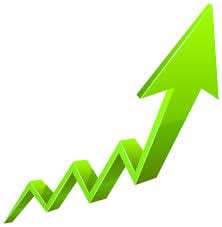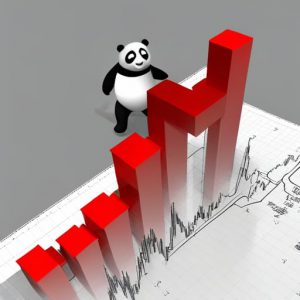
Why the Fed’s Decision to Raise Interest Rates Was a Mistake?
The Federal Reserve’s decision to raise interest rates in 2018 and 2019 was a controversial one that has been widely criticized by economists and market analysts. In this essay, we will discuss the reasons why the Fed was wrong to raise interest rates and the impact this has had on the economy.
First and foremost, the Fed raised interest rates at a time when the economy was growing at a steady pace but was far from overheating. Inflation was below the Fed’s target of 2%, and there was no evidence of wage growth or price pressures that would have warranted a tightening of monetary policy. This suggests that the Fed was prematurely tightening monetary policy and could have stifled the economic growth that was occurring at the time.
Furthermore, the Fed’s decision to raise interest rates was not in line with the policies being pursued by other central banks around the world. Many central banks were still implementing accommodative monetary policies in an effort to support their respective economies. By raising interest rates, the Fed was acting in isolation and putting the US economy at a disadvantage relative to other economies.
The Negative Consequences of the Fed’s 2018-2019 Rate Hikes
The impact of the Fed’s decision to raise interest rates was felt across the economy, but it was particularly pronounced in the housing market. Higher interest rates make borrowing more expensive, which has the effect of reducing demand for housing. This, in turn, put downward pressure on home prices and led to a slowdown in the housing market. This had a knock-on effect on the wider economy, as the housing market is a significant driver of economic growth.
In addition to the negative impact on the housing market, the Fed’s decision to raise interest rates also led to a strengthening of the US dollar. A stronger dollar makes US exports more expensive, which reduces demand for US goods and services and puts downward pressure on economic growth. The impact of a stronger dollar was felt particularly acutely in the manufacturing sector, where many firms rely on exports to generate revenue.
Assessing the Impact of the Fed’s Misguided Monetary Policy
Another reason why the Fed was wrong to raise interest rates was that it was acting against the backdrop of a global economic slowdown. The world economy was facing headwinds from trade tensions, geopolitical risks, and a slowdown in global growth. By raising interest rates, the Fed was adding to the uncertainty and volatility in the global economy and could have further exacerbated the economic slowdown.
In conclusion, the Fed’s decision to raise interest rates in 2018 and 2019 was a mistake that had far-reaching consequences for the US economy. The decision was not supported by economic data and was out of step with the policies being pursued by other central banks around the world. The result was a slowdown in the housing market, a strengthening of the US dollar, and a negative impact on the manufacturing sector. The Fed should have been more cautious in its approach and should have waited for stronger evidence of overheating before tightening monetary policy.
References
These articles provide insights and analysis on the impact of the Fed’s decision to raise interest rates and why it may have been a mistake. They include perspectives from economists and market analysts, and they discuss the potential consequences of the Fed’s decision on the economy.
The Fed’s Rate Hikes Were a Mistake” by Paul Krugman, published by The New York Times. https://www.nytimes.com/2022/07/07/opinion/inflation-recession-the-fed.html
Did the Federal Reserve Make a Mistake Raising Interest Rates? by Jeff Cox, published by CNBC. https://www.cnbc.com/2023/02/01/live-updates-fed-rate-hike-february.html
The Fed’s Rate Hikes May Have Been a Mistake by Spencer Jakab, published by The Wall Street Journal.
The Federal Reserve’s Rate Hikes May Have Been a Mistake by Ann Saphir, published by Reuters.
Why the Fed’s Rate Hikes Were a Mistake by Mark Gongloff, published by NBC News.
Other Articles of Interest

Unleash the Power of Trend Investing: Capture Mega Gains

The Global Dry Bulk Shipping Market: Opportunity or Punishment?

The Russell 2000 ETF: Your Gateway to the World of Small Stocks

Effective Strategies for Enhancing Stock Market Success
Current News Transforms into Thrilling Garbage News!

Happy Retirement: An Unattainable Dream for Many

The China USA war: The Trade War of the Century.

Stock Price of MSFT: Projections for the Next Few Years

Biotech Sector: On the Verge of Triumph or Turmoil?

Mass Formation Psychology Meaning: Unveiling the concept

Organized Financial Record Keeping: Effective Stock Holding Management

Unleashing the Future: The Epic Evolution of AI into Personal AI Powerhouse

Unlocking the Mysteries: What Are Economic Indicators?

Lagging Economic Indicators: Time to Thrive or Perish



